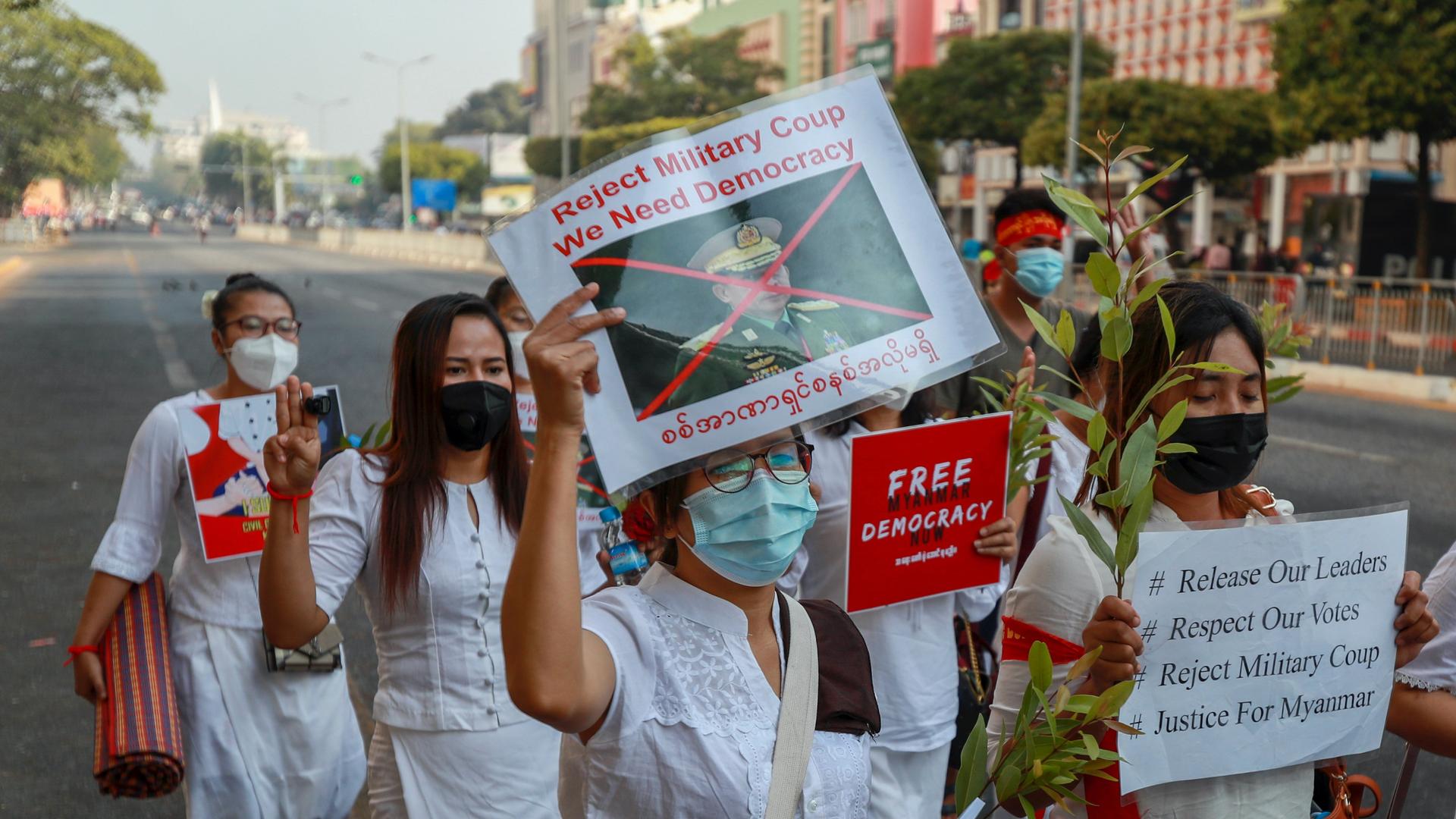UN Human Rights Council starts work to address a ‘pandemic of human rights abuses’
The UN Human Rights Council convened Monday for its 46th regular session to address what UN Secretary-General António Guterres called a “pandemic of human rights abuses” that has intensified amid the coronavirus.
The HRC’s session runs through March 23, and it has a full agenda: It plans to discuss dire situations in Myanmar, Venezuela, Syria, South Sudan, and Sri Lanka, among others. More than 100 nongovernmental organizations are also calling on the council to establish a way to monitor and report human rights violations in Egypt.
Related: Public art honoring Egyptian American Moustafa Kassem sends universal human rights message
In addressing those issues, the HRC’s “biggest challenge is just its credibility on the international scene,” said David Kaye, a law professor at the University of California, Irvine.
The council is the sole international body entrusted with the promotion and protection of human rights around the globe. But Kaye said it’s also been widely criticized for not holding its own members accountable for human rights violations.
That was one of the Trump administration’s criticisms when it withdrew US participation from the council in 2018. The US, under President Joe Biden, is now rejoining the council as an observer — which means it can speak in the council meetings, participate in negotiations and partner with others to introduce resolutions.
Kaye said that the US left a vacuum that allowed China to increase its influence on the council. China was elected as a member of the HRC late last year.
“China is committing some of the most serious human rights abuses in the world. While they’re doing that, they are also seeking to play a pretty active role on the council itself, taking aggressive positions.”
“China is committing some of the most serious human rights abuses in the world,” Kaye said. “While they’re doing that, they are also seeking to play a pretty active role on the council itself, taking aggressive positions.”
To push back against that, and to help restore the council’s credibility, overall, Kaye said the US needs to support actions that hold even its allies accountable — from Saudi Arabia and Egypt, to Poland, Hungary, and Israel. And, he said the US needs to account for its own human rights abuses — something he thinks it’s not prepared to do.
Related: French report reignites debate about colonialism in Algeria
“Historically, the United States has simply not implemented its human rights obligations in the United States,” Kaye said. “There’s no human rights culture and infrastructure in the United States.”
Kaye said that was highlighted last year when Minneapolis police killed George Floyd, and protests spread across the US and the world. African countries asked the council to establish an independent commission of inquiry to investigate police brutality in the US.
The council didn’t agree to that, but it “adopted a watered-down resolution due to the enormous diplomatic pressure from the United States and other allied countries,” said Salma El Hosseiny of the International Service for Human Rights.
The US successfully lobbied to limit the investigation to a less extensive report by the High Commissioner for Human Rights, and also to widen the scope to focus on all countries. An update on that report is due next month, and many groups will be closely watching how the US reacts, Hosseiny said.
“We look forward to seeing the United States constructively engage in good faith with this process, with the report, and with genuine self-reflection and commitment toward change,” she said, adding that it will be one of the early tests of the US’s renewed commitment to the Human Rights Council.
Related: Civil rights groups oppose expanding laws to target domestic terrorists
Meanwhile, the HRC’s failure to rein in human rights abusers in recent years, in part because of the US’s departure, has endangered the lives of on-the-ground human rights workers who report to the council, according to Shamini Darshni Kaliemuthu, executive director of the Asian Forum for Human Rights and Development in Bangkok.
“Without their participation, it would be impossible for diplomats sitting in Geneva or New York to make an informed decision about what is happening, say, for example, in Myanmar or Sri Lanka.”
“Without their participation, it would be impossible for diplomats sitting in Geneva or New York to make an informed decision about what is happening, say, for example, in Myanmar or Sri Lanka,” Kaliemuthu said.
She said human rights workers on the ground are facing increasing reprisals, including death threats, jail time and confiscation of passports.
Related: The US draws a red line, saying China cannot name Tibetan Buddhism’s next leader
“Many defenders are constantly under state surveillance,” Kaliemuthu said. “Some have been labeled as ‘terrorists.’ They face trumped-up criminal charges under draconian terrorism and other laws. Many are in detention.”
Kaliemuthu said atrocities in some parts of the world are going unaddressed because it’s too dangerous for human rights workers to report back. But she doesn’t think countries committing violations should just be kicked off the council.
“Even if states are complicit to attacks and reprisals against human rights defenders, we think that they should still have a seat at the table because it’s peer pressure, right?” Kaliemuthu said.
